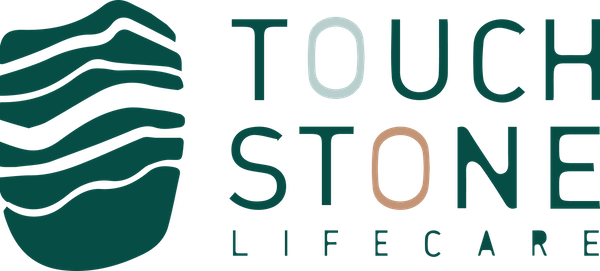Touchstone Life Care has called for the Commonwealth Government’s new Aged Care Act to mandate the use of digital advance care planning to meet the escalating needs of an ageing population and satisfy the recommendations of the aged care royal commission.
In its submission to the Senate Community Affairs Legislation Committee inquiry into the provisions of the Aged Care Bill 2024, Touchstone calls for:
- mandatory digital advance care planning integration
- support for aged care providers to adopt digital interoperable solutions
- enforced advance care planning completion and sharing
- ongoing monitoring and compliance.
The implications can be profound and traumatic for patients, loved ones, carers and clinicians, Touchstone’s founder and CEO Dr Merran Cooper writes in the submission.
“By supporting and promoting the adoption of digital [advance care planning] platforms, the new Aged Care Bill can significantly improve the quality of care for older Australians, particularly during critical transitions between residential aged care and hospital care,” Dr Cooper says.
The Australian Government introduced the Bill to Parliament on 12 September, with the new Aged Care Act expected to come into effect on 1 July 2025.
While the sweeping aged care reforms will bring about much needed change in the sector, Dr Cooper writes that the new legislation should more comprehensively address the need for reliable advance care planning (ACP).
Without support for widespread adoption of interoperable digital advance care planning, the current manual processes will continue with concerning outcomes that include:
- wrongful CPR and critical care delivery that does not align with a patient’s recorded wishes;
- residents and families who are aggrieved when agreed care choices that have been communicated by phone, speech or on pieces of paper are not followed, including inappropriate transfers to hospital emergency intrusive medical interventions and life extending treatments;
- elderly patients who are too unwell, or have lost the capacity to speak or make decisions for themselves, having to wait longer than necessary for treatment in emergency departments or being hospitalised while efforts are made to find out if an ACP exists, and if so validate it and ascertain if it is up-to-date and shared with family;
- residents and consumers’ sensitive health data being inappropriately transferred or shared including by fax, emails, handwritten documents and other measures that do not meet the privacy requirements outlined in the Draft Bill; and
- arguments between ambulance responders and staff of aged care providers.
Dr Cooper writes that much of this is avoidable with a properly constructed and accessible digital ACP.
The use of paper and PDF-based forms:
ACP documents are usually created and stored in static formats, such as paper and PDFs, resulting in illegible, conflicting or outdated directives with no single source of truth, and a lack of validity or verification (as well as accessibility).
For example, as a doctor I have repeatedly seen ACPs up to 40 pages long with tick boxes that include both boxes ticked for CPR and not for CPR. More recently as a digital health technology CEO, managers of residential care facilities report that they fill in the forms on behalf of the resident then fax it to the Receptionist of the GP, who signs it on behalf of the GP and faxes it back, and they fax it to members of the resident’s family who sign it and fax it back.
Lack of access during transitions of care:
ACP documents are not included in the hospital transfer summaries leaving healthcare providers and ambulance services without meaningful and critical information. Furthermore, there can be significant delays after admission to residential care – often lasting months – before family meetings are held to discuss and finalise ACPs. As a result, many residents remain without a completed ACP, exposing them and their care providers to unnecessary risks.
Lack of sharing with substitute decision makers and sharing without regard to privacy:
Numerous reports have highlighted cases where residents had a valid advance care directive, but it had not been shared with substitute decision makers, resulting in conflict and delayed decision making, wrongful CPR and more.
How does Touchstone’s digital advance care planning solve these problems?
A leading cloud-based digital advance care planning management platform, Touchstone is built and housed in Australia to address the needs of all health and aged care providers, and those preparing for significant changes towards the end of their life.
By providing guided creation and sharing of advance care plans ahead of need, and making them available at the point of need as a verified single source of truth, Touchstone addresses the needs of aged care providers to demonstrate performance in digital advance care planning, while still allowing choice to the consumer as to what documents they complete, how and when they are completed, and with whom they are shared.
The platform also includes real time translation and features to address needs for accessibility and cultural diversity, as well as patient-controlled, seamless sharing between acute and aged care providers, GPs, My Health Record, ambulance, hospices and community settings.
About Touchstone
Securely store and share your Advance Care Directive or Goals of Care document.
Touchstone Life Care is a complete end-of-life planning platform that makes it simple, secure, and empowering to plan for the future – on your terms.
Book a demonstration to discover why residential aged care and home care providers are adopting digital advance care planning.
- Sellars M, Tran J, Nolte L, White B, Sinclair C, Fetherstonhaugh D, Detering K. Public knowledge, preferences and experiences about medical substitute decision-making: a national cross-sectional survey. BMJ Support Palliat Care. 2021.
- Mitchell I, Lacey J, Anstey M, Corbett C, Douglas C, Drummond C, Hensley M, Mills A, Scott C, Slee J-A, Weil J, Scholz B, Burke B, D’Este C. Understanding end-of-life care in Australian hospitals. Australian Health Review. 2021;45(5):540-7.




